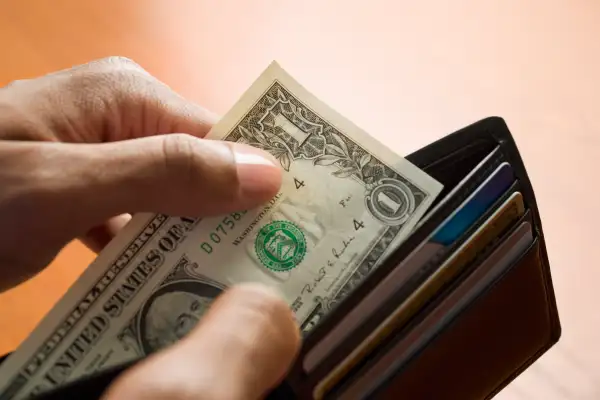What Bills Should I Pay First If I'm Short on Cash?

When bills are due and you’re short on cash, don’t panic. Think basic necessities first, credit card debt second.
“You want to make sure you’ve got a place to live, as opposed to making sure that you pay your Discover bill on time,” says Kevin Weeks, president of the Financial Counseling Association of America (FCAA). “Pay your mortgage if you have a home—the most important asset that you have is your home, and you don’t want to fall into any foreclosure type situations. The same holds true for rent. You don’t want to get evicted. You want to make sure you have a roof over your head.”
Secured debt, such as a mortgage, involves real property and is more essential to basic survival. If you fall behind on these payments, you risk defaulting on your loans or, worse, foreclosure or repossession.
Other necessities include food, utilities, and transportation (say if you rely on a car to get to work). If money is tight, consider cooking more at home instead of going out to eat. Keep your lights and heat on, and pay your car loan.
Take a look at your budget, and where your money is going, and discern which things you truly need. When those needs are covered, move on to credit card debts, student loan payments, and medical bills. In the case of all bills, if you know you are going to be late, inform your creditors. They may be willing to give you more time or waive any late fees.
The timeliness of your credit card payments accounts for 35% of your credit score, so consistent late payments will make it difficult to maintain, or build, good credit.
Read next: These Are the 10 Most Common Financial Leaks. Plug Them Now!
When you’re paying off credit cards, the most important things to consider are: interest rates, the health of the account, and the size of the balance. High interest rates, if ignored, will add to your overall debt. If you’ve missed payments before on an account, that’s not a healthy account, and your creditor might seek harsher remedies to collect the debt. A large credit card balance that goes unpaid can have a more significant impact on your credit score.
There are multiple ways to tackle credit card debt, but one sure strategy, Weeks says, is to pay more than the minimum if you can. Whatever you pay above the minimum goes straight to your principal and helps chip away at that balance faster. If you’re having trouble figuring out the best way to pay these balances, contact a nonprofit credit counseling agency.
If you have student loans, these are important but more flexible than other debt. There are now more ways to adjust your loan payments or defer your loans depending on your situation. If you’re out of a job or unable to pay your loans, look into deferral. If your loan payments are too high for your current budget, you can enroll in an income-based repayment plan. Whatever you do, make sure you deal with this directly with your lender. Other companies can help, but they often charge fees.
Read next: Credit Card Debt Is the Most Embarrassing Kind of Debt
Most important: When you get in a tough financial situation, it’s essential to analyze your budget and spending so you don’t find yourself in the same situation next month.